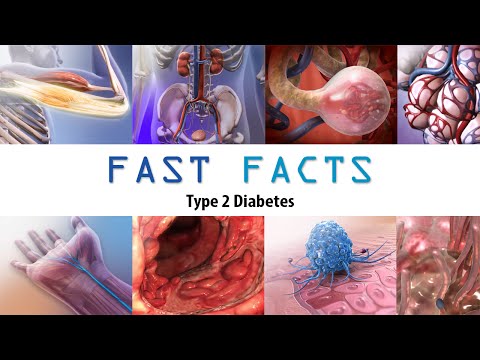Men’s health was historically overlooked as a specific domain that needed specialized attention, but that has changed. A shift in society has seen increasing awareness of men’s specific health needs and a growing recognition that gender-specific care is the best approach.
The Critical Role Of Nurses In Men’s Health
Nurses play a big role in this space, with involvement in everything from preventive care to education, treatment plans and even advocacy.
Prevention and regular health screenings
Early detection and prevention are often something that men have struggled with. Rather than waiting until things get really bad before seeking care, attitudes have changed, and men today are taking a more proactive approach than ever before. Nurses are often a big part of these routine screenings and play an especially important role in educating and encouraging in this area.
There are some types of specific screenings that are crucial for men. Blood pressure checks, cholesterol tests and diabetes evaluations can all prevent serious problems down the line. High blood pressure can often lead to heart disease and stroke if it’s not treated soon enough, and elevated cholesterol levels increase the risk of heart attacks. Undiagnosed diabetes can cause all sorts of serious complications, including damage to the kidneys or even blindness.
Beyond conducting screenings, nurses can employ different strategies to encourage men’s participation in them. Targeted communication techniques can help to stress the importance of screening processes and emphasize the benefits of them, while outreach programs can provide access to communities who have limited accessibility to the necessary check-ups.
Cancer awareness and prevention in men
One of the biggest and most important areas of prevention is against cancer. In terms of men specifically, cancers such as prostate and testicular are common, and both have a good prognosis if they’re detected and treated early. Nurses are often the first line of defense for men against these cancers and are responsible for educating them about the risks and symptoms. This education can take various forms. It can include one-on-one discussions, group workshops and even the distribution of pamphlets or other materials that detail early warning signs.
In addition to this educational role, nurses also play a significant part in early detection screening. Prostate-specific antigen (PSA) tests are one example of a key diagnostic tool used to screen for prostate cancer. Nurses are able to interpret these results accurately and communicate them to patients. Physical examinations conducted by nurses can also help to detect signs of testicular cancer.
Lifestyle counseling around cancer is another role that nurses may find themselves taking on with their male patients. Dietary modifications like focusing on eating more whole foods, as well as making regular physical activity a priority, can significantly decrease the likelihood of developing many types of cancer.
If this type of nursing sounds interesting to you, there are many ways to get involved. One option is choosing one of the online nursing programs offered by a reputable institution such as Rockhurst University. Rockhurst University offers a wide range of nursing online courses, including options for MSN, BSN and those who hold a bachelor’s degree in an alternative field.To find out more about the programs offered, click here. Each program teaches students the necessary skills and practices needed to be a successful member of the healthcare team.
Lifestyle assessments and interventions
As part of lifestyle counseling, nurses may be a member of a team that conducts assessments around men’s lifestyles before offering advice about what interventions make sense for them. Nurses will use various assessment tools to evaluate lifestyle factors such as nutrition, physical activity, sleep patterns, stress levels, sexual health practices and substance use behaviors.
As part of this process, they conduct thorough interviews or surveys. They will ask questions about all these different topics and collate the results. They may also observe patients’ behaviors during appointments and hospital stays for more subtle indicators of lifestyle issues. This data is then used to identify potential risks or areas for improvement in the patient’s lifestyle.
Nurses are instrumental in not only identifying the areas that need improvement, but also coming up with the right strategies to improve things. These strategies are tailored to each individual man’s circumstances. As an example, a nurse might identify obesity as an issue affecting a patient’s overall wellbeing through their assessments. They could then develop a weight management plan that works for that patient specifically.
Sexual health is one area where nurses are proactive in helping patients. They educate them about safe sexual practices, discuss sensitive topics such as erectile dysfunction and guide them on family planning decisions. They also address concerns regarding other sensitive topics like sexually transmitted infections. Addressing all these topics can positively contribute towards better health outcomes for men.
Nurse-led advocacy and policy influence
We’ve largely covered the ways in which nurses can impact men’s health when dealing with male patients themselves, but what about at the policy level? It’s one thing to educate men to be proactive about their health, but the overall system still needs to be set up in a way to accommodate that.
The role of nurses goes beyond the patient’s bedside, and their presence is felt at local, national and even sometimes global levels of healthcare policy. Given that their role is so varied and touches many different parts of healthcare, nurses often have unique insights that no other health professional has, and those insights can be invaluable.
Beyond clinical settings, nurses can bridge gaps by extending men’s health awareness into communities. They can forge partnerships with local organizations to help demystify male-specific health concerns. This grassroots approach ensures that medical guidance reaches even the most remote locations and marginalized populations. It’s also the best way to access men who they might not otherwise ever come across due to them not seeking care until it’s too late.
Nurses are important cogs in the wheel of advocacy too. It’s not just about helping to influence policies, but also advocating directly for their individual patients. Healthcare institutions can sometimes be confusing and filled with bureaucracy, and this can be especially difficult to contend with for men who have not sought healthcare in a long time. Nurses can help make sure their patients completely understand their diagnosis, assist them with insurance claims and even just listen to what they have to say.
Whether it’s prevention, education, lifestyle modifications or community outreach, nurses touch all areas of men’s health. Their efforts have led to significant progress in men’s healthcare, but there is still much work ahead.









Pingback: Exploring the Potential for Fitness Insurance: A New Paradigm for Preventive Healthcare and Personal Responsibility